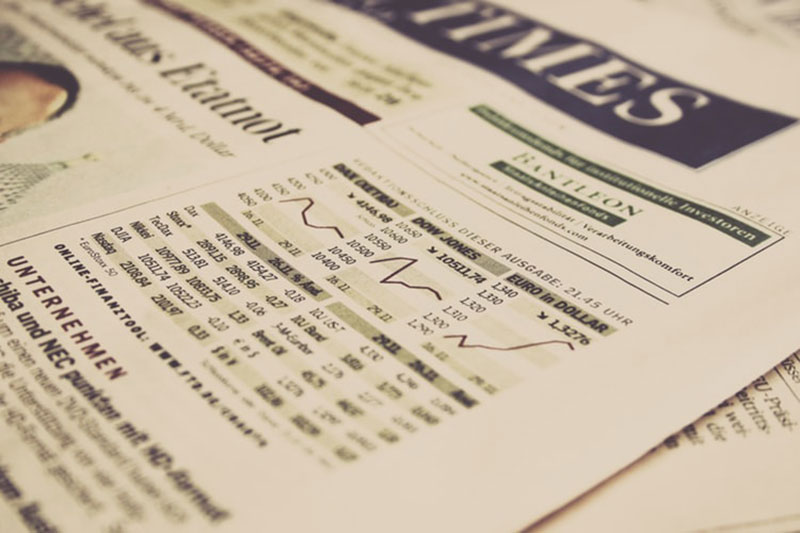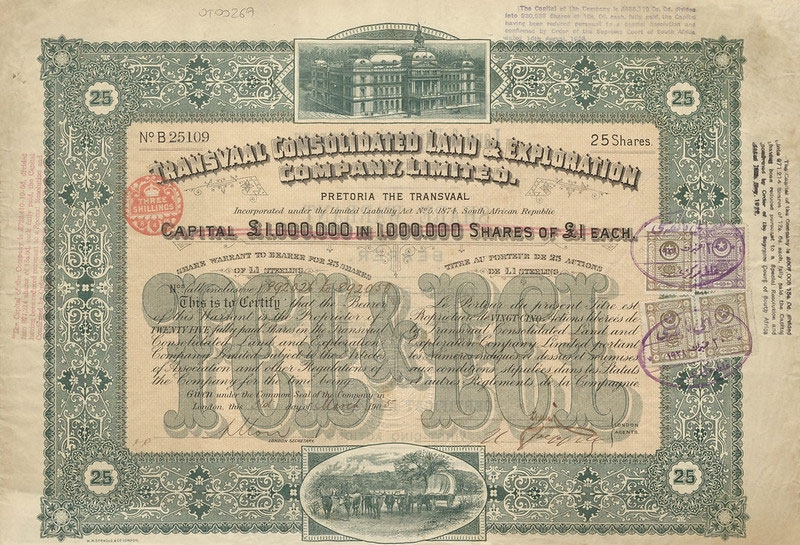Share options and shares are similar, so it makes sense why many people get the two confused. That’s why we’ve written this options vs shares guide for you. Let’s get right into it.
When business owners are first thinking about shares in their business, it’s important that they know the difference between shares and options. This way, they can be sure that what they choose for their business is best.
An important factor in the debate between share options vs shares is that shares are a small stake in company ownership. Options, on the other hand, give you no ownership of the company. Instead, they are only the contract that gives you the ability to purchase or sell a share at a set price by a set date.
You might think that comparing the two is a no-brainer: shares are better than share options, right? Well, before you jump to any conclusions, you should know that share options can be a good way to diversify your assets. Now that you know the basics, let’s get into the details in this article created by our team at TMS.
What are Share Options?
Share options give you the right to purchase or sell shares at a pre-agreed price. This price is referred to as the strike price. The buyer does not have to purchase any shares unless the contract outright says this. Plus, the buyer does not have to pay a fee or an increased price for buying an option. Those who buy options don’t have to already be shareholders.
Shareholders already have the right to buy more shares, so they do not need a share option. Share options are for those external people who may want the chance to purchase company shares as first time buyers.
Ownership of the Company

Equity vs options: what’s the difference? Equity comes with owning company shares. Options, on the other hand, do not give an individual equity in a company or give them shareholder status. With share options, the holder gets the chance to turn the options into shares. They are not obliged to do this, but if they choose to do so, they must do it by the stated date or lose this chance. The purchase of any shares by a share option holder will be at the strike price stated in the contract.
Cash Payment
It does not cost the holder to have options granted. They do, however, have to pay the strike price on exercising the options to turn them into shares. The strike price is generally similar to the market value at the time of contract signing. The strike price can be below market value if this was negotiated beforehand. For example, company employees will sometimes be offered a lower strike price as part of a remuneration package.
Option Types
- Calls – call options are when there is a contract for buying a share by a certain date at a set price. These call options give you the ability to buy at a price set when the contract was created. You can do this any time up until the expiration date. You can remember what a call is by imagining calling the share to you, as calls refer to how you attain the contract.
- Puts – an option is referred to as a put when the buyer makes a contract to sell a share. Again, this contract lasts only for a limited timeframe at a set price. The put options let you sell shares at a set price. You could remember what a put is by imagining putting the share somewhere else, ie selling it. You do not have to sell the share, but a put option gives you the right to.
You’ll find there are the following advantages to maverick trading options rather than purchasing shares:
- Options are cheaper. This means you can have access to more of them then you could shares. If you have limited investment funds, you might find that share options are a great choice for you.
- Options are flexible. It’s up to you if you use your option to purchase or sell shares. It’s simple and easy to understand because the price was agreed upon beforehand. With options, you can figure out if it’s worth exercising a call or put.
There’s also a downside that you should know about. Options trading often comes at a higher risk than shares trading. This is because, in essence, you are counting on the share prices moving either up or down (depending on if you have call or put options).
When people decide to sell options, they are creating an entity that previously wasn’t there. This is called writing an option. It is one of the main ways an option gets created.
Shares
Even if you’ve never invested before, you most likely know what a share is, or at least have a pretty good guess. But for the purpose of our shares vs options comparison, we’ll refresh your memory.
Shares are a way of investing in a company. When you buy a share, you are actually buying a very small part of ownership in that company and will receive a percentage of that company’s revenue. A person can hold a few or many shares in a company. Companies will often limit how many shares people can buy to maintain control.
Some shares pay dividends, but some don’t. Dividends are regular payments made by a company to its shareholders. These are often made annually, quarterly or monthly.
Ownership of the Company
Once you own a share, you are now called a shareholder. This gives you equity ownership in the business. As a shareholder, you get shareholder rights which can include the right to dividends and voting rights. It may also give you the right to part of the company’s assets if it were sold.
Here’s an example for you: Amanda owns 1,000 ordinary shares of a company. These shares have one vote each, and dividend rights. The share capital of the company is 99,000 ordinary shares. Therefore, Amanda owns 1% of the company. She has 1% voting rights and can receive dividends of 1%.
Cash Payment

After the issue and allocation of shares, they are owned by the shareholder. Normally, shares are issued and allocated at a small value such as £0.01 per share. The exception to this is that in a funding round, it will be more than nominal value and an investor will be paying it. Generally, then, shareholders don’t pay a lot for their shares. There is no ongoing payment either, as opposed to investors who sometimes invest regularly. Some share buyers use cash management accounts to easily manage their cash and purchase shares from one account.
Purchase Rights
Existing shareholders get purchasing rights in the case that they want to buy more shares. They can only do this proportionally to the amount they already own. Sometimes, these additional shares are offered at below market price. Investors, too, sometimes have purchasing rights. They can either let these expire or give them to another shareholder if they would like to. Then their investment in the company doesn’t rise.
Share Types

- Ordinary share – sometimes referred to as ‘common stock.’Ordinary shares have the right to the equivalent share of losses or profits of a company. There will be a board of directors, elected by the shareholders. They are the ones who decide to keep profits or pay out dividends to shareholders. They should make these decisions impartially, according to what is best for the company.
- Preference share – these shares do not have voting rights. However, they are entitled to dividends. In fact, they will receive an agreed-upon dividend at pre-set intervals. This is the first priority for dividend payments, over ordinary shareholders. If the business goes into bankruptcy, preferred shareholders will get paid over others.
Key Takeaways
- So, options vs shares – there are many differences between the two. A key difference is that shares represent a portion of company ownership. This is without an expiration date or future payments required by the company shareholder. On the other hand, options only give you the choice of buying shares in the future or selling them. You have no ownership of anything, it is just a contract giving you certain rights. There will always be an expiry date for options,
- Options are you taking a gamble that share prices will either go up or down. If you think the price will be lower, you would want to sell call share options to someone who thinks the price will rise.
- Buyers then give the option, but not the obligation, to buy the share at the predetermined price. The real price of shares in the market is irrelevant to this, as the pre-set price still stands. This pre-set price would have been set according to the market price at the time the contract was written. You can sell your call options to someone else for more, or you can exercise your right to purchase shares.
- Options are a form of security that is determined by the binding contract that comes along with them. They give you the option of buying or selling shares or assets, but you certainly don’t have to. You do, however, need to follow the rules and read the criteria thoroughly to be able to exercise your options.
- Options do have expiry dates. Shares, on the other hand, never expire. If you hold shares, you own them until you sell them or the company folds. Options expire and so you must either exercise your rights or sell them by a specific date. After this date, they will be rendered worthless.
In the UK, it’s surprisingly easy to set up shares for your company. Most startups can use the online tool at Companies House to set up their shares. There are many agents in the UK as well who specialize in company formation. They can set up your shares for you. It’s a very simple process to get started.
FAQs about share options
1. What are share options, and how do they work?
Share options, commonly referred to as stock options, are agreements that grant a worker the right to purchase a particular number of business shares at a set price, or the exercise price. The employee can exercise their share options and purchase company stock after the regular vesting time has passed. The employee is hoping that the value of the company’s stock will rise, enabling them to sell their shares for a profit.
2. How do I determine the value of my share options?
The current market price of the company’s stock, the option’s strike price, the timing of its vesting period, and its expiration date are some of the variables that affect the value of share options. You can estimate the value of your share options and choose when to exercise them with the aid of online calculators and qualified financial consultants.
3. When should I exercise my share options?
The current market price of the company’s shares, the option’s strike price, the vesting schedule, and the expiration date are some of the variables that affect when share options should be exercised. In general, when the market price of the stock is higher than the strike price, it makes sense to exercise share options since you will gain money.
4. Can I sell my share options?
On a secondary market, such as the Over-The-Counter (OTC) market, share options can be sold, although the procedure can be difficult and may call for a financial advisor’s assistance. Also, before attempting to sell share options, it is vital to understand the company’s policy because some businesses have prohibitions on doing so.
5. What are the tax implications of exercising share options?
Share option exercise has different tax consequences depending on the type of option, the exercise price, and the period of time the option was held. Employees will often be responsible for paying taxes on the difference between the strike price and the market price of the shares at the time of exercise. To fully grasp the unique tax ramifications of exercising share options, it is crucial to speak with a tax expert.
6. What happens to my share options if I leave the company?
Employees may lose their stock options if they quit their jobs before they become exercisable. However, after leaving the company for a predetermined amount of time, such as 90 days, some corporations have policies that permit employees to keep their vested options. Before leaving, it’s crucial to comprehend the company’s share option policy.
7. Can I transfer my share options to someone else?
Share options may occasionally be transferred to another person or organization, but this is contingent upon the company’s share option policy. Transferring share options may also have tax repercussions, so it’s vital to speak with a financial or tax expert before doing so.
8. What are the different types of share options?
Share options come in many different forms, such as non-qualified stock options (NSOs) and incentive stock options (ISOs). While ISOs have tougher qualifying restrictions and more advantageous tax treatment, NSOs are more prevalent and frequently have more flexible terms.
9. How do I know if my share options are vested?
Ordinarily, share options have a vesting schedule that specifies when the options may be exercised. Any time up until the expiration date, an option that has vested is one that has fulfilled the vesting schedule’s conditions.
10. Can share options be used as part of a compensation package?
Share options can be used in a remuneration package as a means of luring and keeping staff. Share options generally offer the chance for substantial financial gain should the company’s stock price rise, making them an excellent incentive for employees. So it’s critical that both businesses and employees are aware of the dangers and possible tax repercussions of share options.
If you enjoyed reading this article on share options, you should check out this one about startup failure.
We also wrote about a few related subjects like types of investors, Berlin startups, startup press kit examples, startup advice, startup consultants, financial projections for startups, failed startups, London startups, gifting shares, best startup books and risk management process.
- 35 Successful Startups You Could Learn From - January 18, 2024
- The Biggest IT Outsourcing Failures: 7 Examples - January 14, 2024
- Famous Business Pivot Examples That You Should Know Of - January 13, 2024








